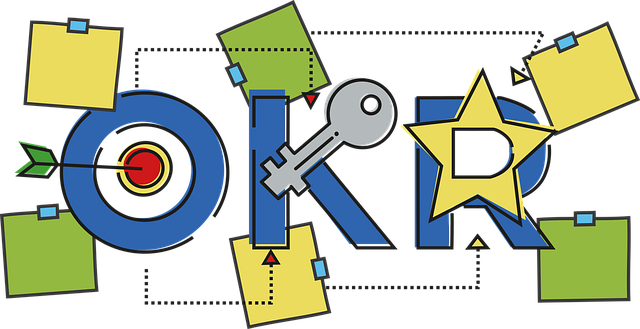Google FAQ Rich Results leverage structured data (FAQPage schema) to display direct answers within search snippets, enhancing click-through rates and user satisfaction. By aligning content with user intent, websites can optimize for SEO, boost engagement, and improve search engine rankings through concise, informative answers to common queries. Implementation involves HTML markup, Accordion Schema, and best practices validation using tools like Google's Structured Data Testing Tool, tracking success via Google Search Console analytics for impression count, CTR, and average position.
Adding the FAQPage schema to your website content is a powerful strategy to boost user engagement and capture more real estate in search engine results pages (SERPs). With Google’s rich FAQ results, your site can display frequently asked questions and answers directly on the SERP, offering a seamless user experience. This article explores how to optimize your content for these enhanced results, from understanding the schema’s benefits to implementing the technical setup. Discover the art of crafting relevant questions and learn how to measure the impact on user engagement and search rankings.
- Understanding Google FAQ Rich Results
- Benefits of Implementing FAQPage Schema
- Choosing Relevant Questions for Your FAQ
- Optimizing FAQ Content for Search Engines
- Technical Setup for FAQPage Schema Markup
- Measuring Success and User Engagement Impact
Understanding Google FAQ Rich Results

Google’s FAQ Rich Results are a powerful feature designed to enhance search results with direct answers to user queries. When relevant questions and answers are structured in a specific format, Google can display them as an expandable list within the search result snippet, providing users with quick access to valuable information. This rich snippet not only improves user experience but also increases click-through rates from search engine results pages (SERPs). By integrating FAQ structures, website owners can ensure their content is optimized for both search engines and end-users.
FAQ Snippet Optimization involves crafting well-structured questions and concise, relevant answers. The schema markup language, such as the FAQPage schema, plays a crucial role in signaling to search engines that your content includes frequently asked questions. By adding this schema to your website’s HTML code, you enable search engines like Google to interpret and display your FAQs effectively, ultimately showcasing your commitment to providing valuable information to users.
Benefits of Implementing FAQPage Schema

Implementing the FAQPage schema offers significant advantages for website owners aiming to enhance their search engine visibility and user experience. By adopting this structured data format, websites can take advantage of Google’s FAQ Rich Results, which display frequently asked questions and answers directly in search result snippets. This not only increases click-through rates but also provides valuable insights into user queries, enabling content creators to optimize their FAQ snippets for better search rankings.
Furthermore, the Accordion Schema SEO technique, when combined with FAQPage schema, allows for a dynamic presentation of questions and answers, creating an engaging interface. FAQ Snippet Optimization becomes more accessible as structured data ensures that key information is extracted and displayed prominently, catching the attention of potential visitors. Ultimately, this strategy fosters higher user engagement by providing quick access to relevant information and improving the overall accessibility of website content.
Choosing Relevant Questions for Your FAQ

When creating an FAQ page, selecting the most fitting questions is a strategic process tailored to your audience’s needs and Google’s understanding of user intent. The goal is to answer the queries that users are most likely to have about your product or service. Thinking from a user perspective will help you determine the relevant questions for your schema markup. For instance, if you run an online electronics store, common questions might include “What are the return policies?” and “Can I track my order?”. These directly address customer concerns and align with what users might search for when seeking information about making purchases online.
To maximize the benefits of Google FAQ Rich Results and enhance your Accordion Schema SEO, focus on creating a diverse set of questions that cover various aspects of your business. This includes how-to guides, troubleshooting tips, product specifications, shipping details, and more. By providing comprehensive answers to these frequently asked questions, you not only improve user engagement but also give search engines valuable data to display in rich snippets, potentially increasing click-through rates and saving users time.
Optimizing FAQ Content for Search Engines

To optimize your FAQ content for search engines like Google, focus on creating structured, relevant, and high-quality answers to frequently asked questions. The Google FAQ Rich Results feature leverages Schema.org’s FAQPage type to present concise and engaging snippets in search results, enhancing user experience and potentially increasing click-through rates. When implementing the FAQ schema, ensure each question is distinct, has a clear answer, and is written in plain language.
Use of proper HTML markup, including “, is crucial for signaling to search engines that your content adheres to the Schema FAQPage standard. Additionally, FAQ Snippet Optimization techniques, such as incorporating relevant keywords naturally within questions and answers, can further improve visibility. By following these best practices, you’ll not only increase your site’s eligibility for rich FAQ results but also enhance overall user engagement with your content.
Technical Setup for FAQPage Schema Markup

Implementing the FAQPage schema markup is a technical process that empowers websites to enhance their visibility and user experience when it comes to Google’s rich FAQ results. To begin, developers need to identify and structure the data within the content that will be presented as frequently asked questions. This involves carefully organizing the question-answer pairs, ensuring they are clearly defined and accessible. Once the data is structured, the next step is to utilize the Schema FAQPage Type to mark up the content. By incorporating this schema type, search engines like Google can better understand the context and display the information in a rich, interactive format.
The technical setup involves adding specific markup tags within the HTML code of the web pages containing the FAQs. The Accordion Schema SEO technique is often employed to create an expandable and collapsible structure for the questions and answers. This not only improves accessibility but also aligns with Google’s preferences for dynamic and user-friendly content. To add FAQ schema successfully, developers should follow best practices, ensuring each question-answer pair is distinct and correctly nested within the accordion structure. Proper validation using tools like Google’s Structured Data Testing Tool can help identify any errors or missing elements, guaranteeing a seamless implementation of this strategy to boost SERP real estate.
Measuring Success and User Engagement Impact

Measuring success after implementing the Google FAQ Rich Results is paramount to understanding its impact on user engagement and search engine rankings. By utilizing analytics tools provided by Google Search Console, webmasters can track the visibility and performance of their structured data. Key metrics include impression count, click-through rate (CTR), and average position, which offer insights into how users interact with the enhanced search results. A higher CTR indicates that the FAQPage schema is effectively providing relevant, concise answers to user queries, encouraging clicks.
The impact on user engagement is profound, as rich FAQ results can significantly reduce bounce rates and increase time spent on the page. This is particularly evident when FAQs address common concerns or questions directly, allowing users to find solutions swiftly. Through regular monitoring and optimization of the FAQ Snippet, website owners can further enhance these results, ensuring their content remains relevant and engaging for searchers, ultimately improving overall SERP real estate.
